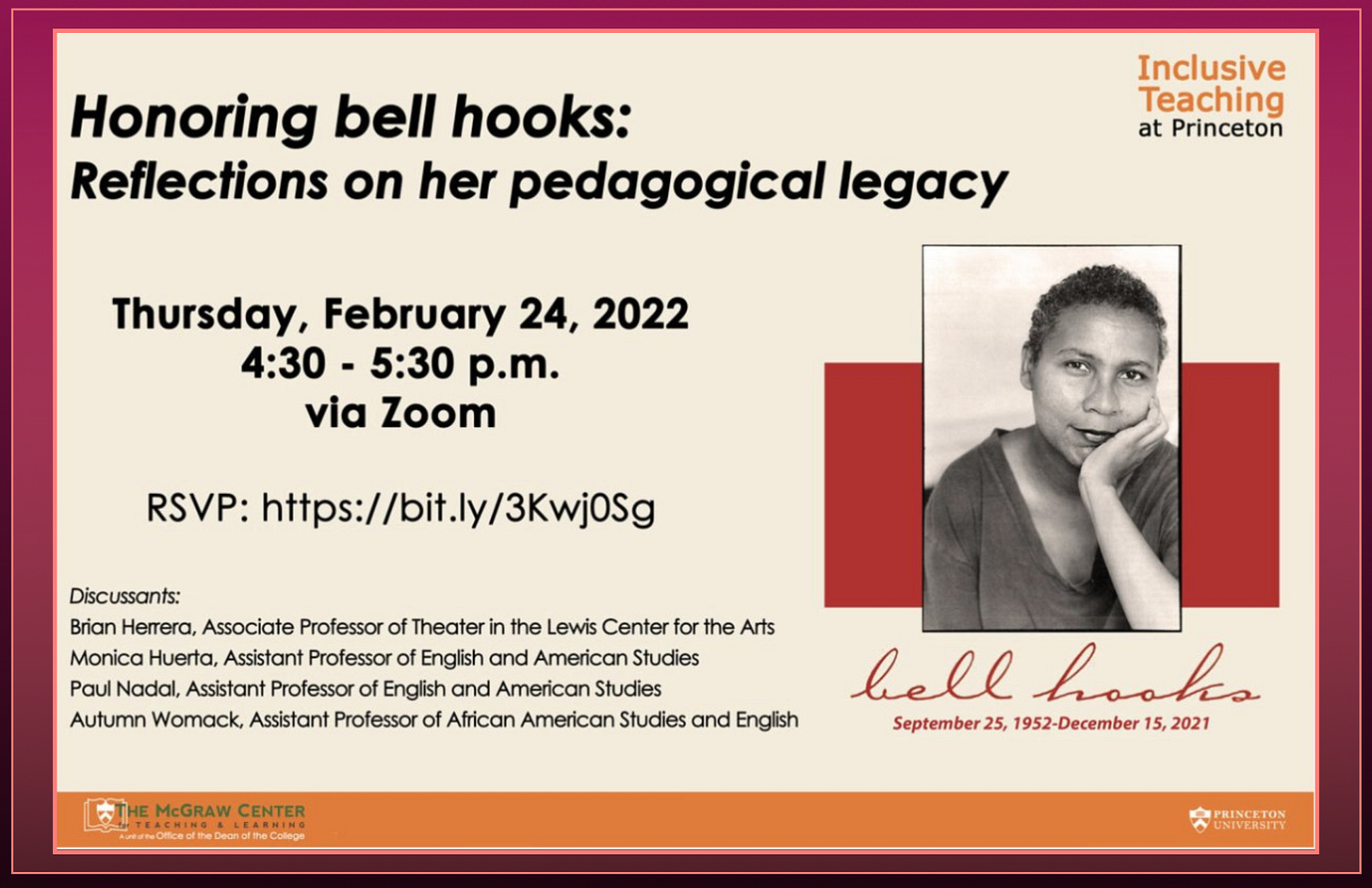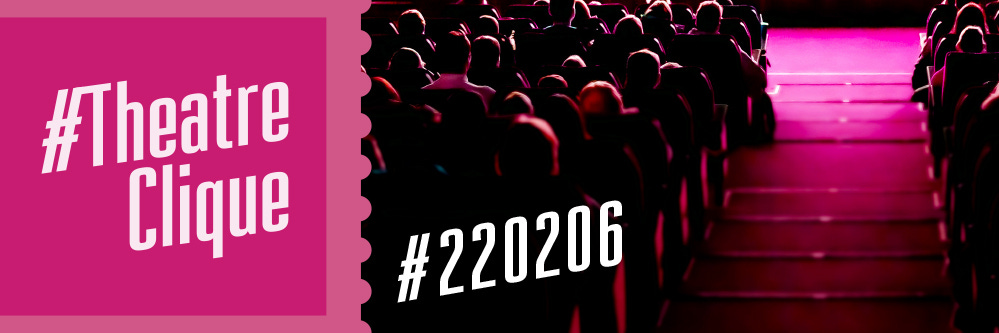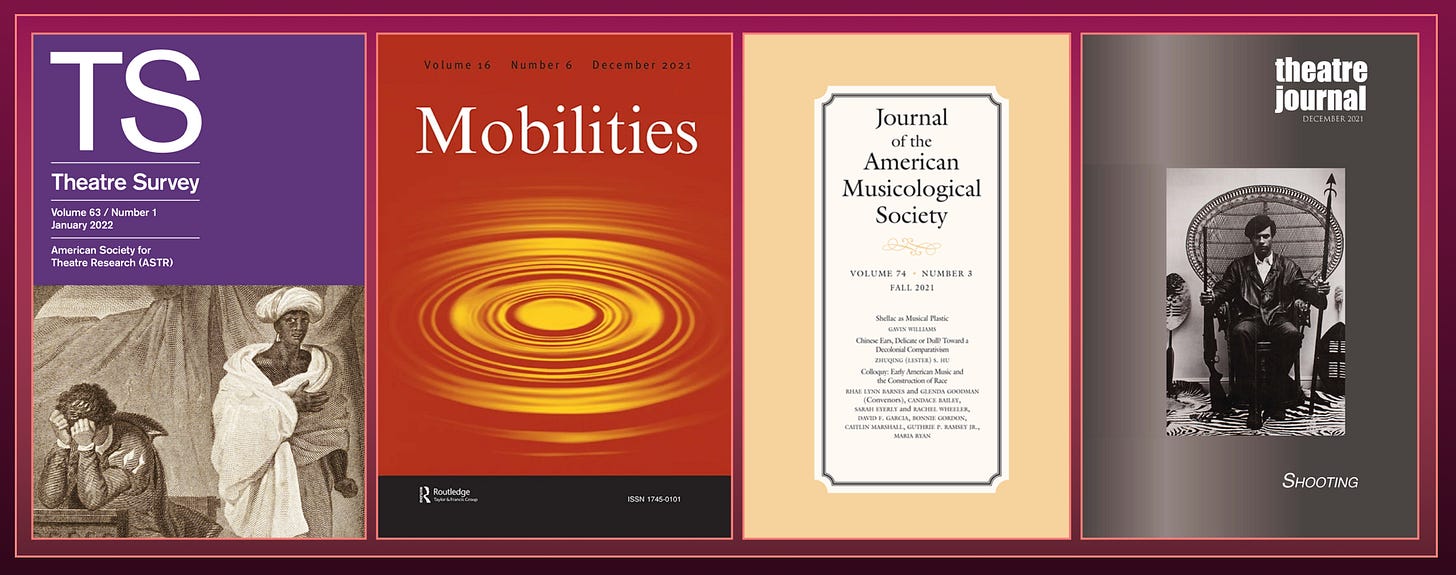WELCOME to the #TheatreClique Round Up — my (mostly) weekly newsletter dedicated to clicking on some of the most interesting, intriguing & noteworthy writing about drama, theatre & performance (at least, so says me)…
This Week's #TheatreClique-ing:
For this week’s opener, I lift the trailer for a new documentary, Imperfect: The Film, which “chronicles a unique company of actors who have all nature of disabilities – from spinal cord injury to Parkinson’s Disease, cerebral palsy to autism – as they attempt an unprecedented version of Kander, Ebb, and Fosse’s beloved musical Chicago.” The film’s been streaming as part of the 2022 Slamdance Film Festival, and will remain available via subscription to the SlamdanceChannel…
And here is some what’s been clicking since my last newsletter…
LATimes’ Charles McNulty considers the ethics of encouraging theatregoers to see a show amidst the Omicron surge • Forbes’ Lee Seymour considers how the recently “leaked” Broadway sales data for Fall 2021 complicates familiar (racial) canards about what sells on Broadway • NYTimes’ Michael Paulson reports on the ways the recent Omicron surge has Broadway tours hitting bumps on the road • On Our Team launches Pay Equity Standards — a path for theatre companies to “establis[h] equitable pay using a three-pronged approach to pay equity: Transparency, Working Conditions, and Accountability” • Wanna better your chances for getting cast in TV/Film? Apparently, there’s an app for that! • and in the Washington Post, writer Tanya Ward Goodman makes the “case for visiting offbeat museums and attractions”…
at TapIntoPrinceton, writer/editor Richard K. Rein wonders “where have all the theater critics gone” for notable regional productions like McCarter’s Dreaming Zenzile • Vogue’s Adam Green talks to writer Aleshea Harris (and collaborator Whitney White) about her aesthetic of “deranged frivolity” and her latest play/production, On Sugarland • at the NewYorker, writer Thomas Beller offers (an unofficial and pre-premiere) review of Senator Bill Bradley’s one-man show (see also this reflective WaPo piece from political columnist Matt Bai) • for Playwrights Horizons’ Almanac, poet Omar Holmon reflects on the ways Dave Harris’s Tambo & Bones surprised him by being “the Black art I been wanting for the longest” • Town & Country’s Caroline Hallemann profiles “The Age of Christine Baranski” • and in response to recent production of Anna Deavere Smith’s Fires in the Mirror at Long Wharf Theatre, The Arts Council of Greater New Haven’s Lucy Gellman contemplates the play’s enduring resonance (and relevance) and how “it is hard to see this work and not think of New Haven, where the scars of urban renewal, redlining and environmental racism are still raw and throbbing”…
scholar Daniel Pollock-Pelzner brings forth “An Oral History of the Making of Hamlet” for McSweeney’s • Duke’s John Hope Franklin Humanities Institute invites you to meet Dr. Esther Kim Lee and to learn a bit about her latest book, Made-Up Asians: Yellowface during the Exclusion Era (UMichigan) • Texas Tech talks to director Jesse Jou and intimacy choreographer Laura Rikard for “an intimate peek at the intimacy choreography for Spring Awakening” • and writer/director Isaac Butler’s hotly anticipated (and certain-to-be field reorienting) cultural history The Method: How the Twentieth Century Learned to Act (Bloomsbury, 2022) receives exultant reviews across the theatre-mediascape ( NewYorker, AmericanTheatre, TheAtlantic, Time, LATimes, AVClub, BostonGlobe to link a few). To whet your appetite, find excerpts at Vulture, Slate, LitHub and AmericanTheatre, listen to Butler chat with NPR’s Scott Simon or watch Butler go into inimitably deep yet engaging conversation with NYTimes’s A.O. Scott…
Voices from Academe:
If you are not academically-affiliated, or if your institution does not subscribe to these journals, shake the social media trees to see if some academic somewhere might hook you up with a pdf or two. Or check with your friendly neighborhood librarian to see if they can help. But download the pdf directly if you can. Because ACADEMIC CLICKS COUNT too!
Over the last several weeks, a number of noteworthy essays have rocked my world a little (or a lot) — so, rather than highlighting just one, I thought I might as well give shoutouts to them all…
Judith Hamera, “Counterpublic Goods in Interesting Times: Transitional Subjectivities Onstage at Highways Performance Space, 1989–1993,” Theatre Survey 63.1 (January 2022): 90-114. In this most welcome historical chronicle of the founding years of the legendary Los Angeles Highways Performance Space, Hamera evinces how activist and artistic histories of the late 1980s and early 1990s “rhyme” instructively with the histories we’ve been living through in the early 2020s. Easily the most illuminating explication I’ve yet encountered detailing the historical resonances between the early AIDS era and these (early?) COVID years…
Bethany Hughes, “Beautifully Uncontainable: Of Honeysuckle and Choctaw Walking,” Mobilities (2021). Once again — while pondering on invasive species, walking, and Indian Removal in the United States — Bethany Hughes serves an enthralling rumination on the experiential present of settler colonialism, especially with regard to mobility, Indigeneity and the complicated challenges of acknowledging the always landed histories of place.
Rhae Lynn Barnes & Glenda Goodman, “Early American Music and the Construction of Race,” Journal of the American Musicological Society 74.3 (Fall 2021): 571–657. This extraordinary colloquy “aims to advance the conversation about music and the construction of race by foregrounding case studies of marginalized music makers in America before the advent of recorded sound.” Check out the Colloquy’s TOC for a glimpse of the remarkable constellation of essays, which includes Caitlin Marshall’s breathtaking “A Voice Like Thunder: Edwin Forrest’s Sonic Redface” — which will forever change how I think (and teach) about this pivotal figure in early 19th century popular/political culture.
Patrick Anderson, “Dramaturgies of Policing: Performance Theory, Police Violence, and the Limits of Accountability,” Theatre Journal 73.4 (December 2021): 533-549. The elaboration of one of my favorite papers from ASTR2019, in which Anderson — drawing upon their experience serving on a police oversight board — asks a question that has reverberated for me for 2+ years: “Just as performance theory might have something to teach us about policing, what might policing have to teach us about performance theory?” A profoundly and rigorously humane contribution to the field.
On This TheatreCliquer's Dance Card:
Wherein I shamelessly promote my own upcoming public events.
Jewish Currents editor-in-chief Arielle Angel hosts this dynamic and informative conversation among filmmaker/writer Frances Negrón-Muntaner, writer/scholar Daniel Pollack-Pelzner and yours truly about “the parallel resonances of West Side Story in Jewish and Latinx communities, and the tensions that emerge over questions of power and control”…
and in a couple weeks, I’ll be joining my colleagues Autumn Womack, Paul Nadal and Monica Huerta — at the invitation of the Inclusive Teaching at Princeton initiative — to contemplate the extraordinary pedagogical legacy of bell hooks…

and Profe Herrera’s Virtual Bookmobile is OPEN!
Wherein I release books from my bookshelf to yours— a little free virtual bookmobile if you will… You pick a title from this list of mostly new and mostly notable books; then you fill out this simple form; and then I send your chosen book to you via USPS for you to keep. That’s it! NOTE: Be sure to check out the kicky new interface I’m using to list the books! And keep checking back — I’ll be adding scores of titles over the next week or so...
Until next time, dear #TheatreClique, please share this newsletter with those friends, colleagues and students who might appreciate the opportunity to encounter the many voices gathered in each week’s edition. Errors and oversights published in the newsletter will be corrected in the archival versions. And, in the meantime, keep clicking those links — good writing needs good readers and our theatre clicks count!





